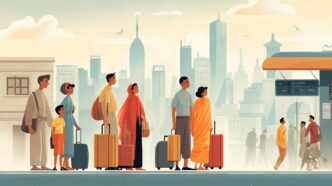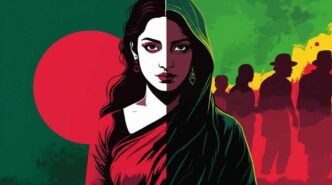The role of student politics in Bangladeshi universities has been a subject of intense debate for decades. Opinions vary widely, from those advocating for its complete abolition to those who believe it is an essential component of a vibrant democracy. Critics argue that it fosters violence, corruption, and partisan influence, creating a toxic environment on campuses. Proponents, however, see student politics in Bangladesh universities as crucial for cultivating leadership, civic engagement, and social awareness among the youth.
As the interim government announces the reopening of all universities, a new wave of student activism has emerged. Many student bodies have presented a set of demands they want addressed before resuming classes, marking this as an opportunity to reform the political ecosystem in Bangladesh universities. This reignites the long-standing debate about the role of student politics in Bangladesh universities. The youth of our country have never truly had the chance to participate in a democratic political environment, and as we begin creating one, the question arises once again: do we need student politics in Bangladesh universities?
The historical significance of student politics in Bangladesh universities cannot be overstated. Throughout the country’s history, students have been instrumental in driving social and political change.
From the Language Movement of 1952 to the Liberation War of 1971, student activists played crucial roles in mobilizing public opinion and leading the charge for national independence. These movements were driven by ideals and issues that directly impacted the lives of the student body and the broader population, demonstrating the power of student politics in Bangladesh universities to challenge the status quo and drive societal progress.
However, the landscape of student politics in Bangladesh universities has undergone a significant transformation since then. The once idealistic, issue-based movements have often been hijacked by partisan interests. What was once a platform for advocating student rights and national issues has become entangled with partisan politics, leading to a decline in its credibility and effectiveness. The influence of national political parties has overshadowed genuine student concerns, turning campuses into battlegrounds for party rivalries.
The factionalism and violence synonymous with student politics in Bangladesh universities today are largely fueled by external political influences. Student wings of national parties often engage in activities unrelated to student welfare, furthering the agendas of their parent organizations.
This has created a climate of fear and intimidation on campuses, where students are reluctant to participate in political activities for fear of reprisals. This loss of autonomy and credibility has turned student unions into a nightmare for those without political ties. For example, the Bangladesh Chhatra League, the student wing of the Awami League, has been accused of using its influence to control student unions and suppress dissenting voices. This has led to a toxic atmosphere where many students are unwilling to engage in political activities or express their opinions.
Despite these challenges, the potential of student politics in Bangladesh universities to nurture future leaders and foster civic engagement remains significant. Universities are not just academic institutions but microcosms of society, where students can develop leadership skills and engage in civic activities.
By participating in student politics in Bangladesh universities, students can gain firsthand experience in governance, decision-making, and consensus-building—all essential skills for their future roles as citizens and leaders.
Recent student movements in Bangladesh show how student politics in Bangladesh universities can serve as a platform for positive change, providing a space for political discourse, advocacy, and representation of student interests. When conducted responsibly, student politics in Bangladesh universities can serve as a training ground for future policymakers and leaders, many of whom will go on to play significant roles in shaping the nation’s future. Many prominent leaders were actively involved in student politics during their university days, and these experiences later shaped their political careers.
To realize the potential of student politics in Bangladesh universities while mitigating its negative consequences, a fundamental shift in approach is required. The emphasis should be on issue-based politics rather than partisan affiliations. For example, university administrations could implement rules that ban political party symbols, slogans, and campaigns in student elections. Additionally, students could be required to sign pledges committing to non-partisanship and independence from external political influences. This would ensure that student politics in Bangladesh universities remains focused on issues that directly affect the student body, rather than being co-opted by external agendas.
Moreover, there must be a zero-tolerance policy for violence on campus. Universities should establish proper mechanisms for conflict resolution and hold student leaders accountable for their actions.
Disciplinary measures should be strictly enforced to deter violent behavior and ensure that campuses remain safe spaces for academic and political discourse. We need to remember that unions and organizations are meant to serve students, not the other way around. Despite the challenges, the university must remain a safe haven for its students to maintain academic integrity.
Additionally, universities should encourage diverse participation in student politics in Bangladesh universities, ensuring that all student groups—including women, minorities, and marginalized communities—have a voice in decision-making processes. This would create a more representative and equitable political ecosystem, where the interests of all students are considered and addressed.
Student politics in Bangladesh universities, when conducted responsibly and ethically, can be a powerful force for positive change, as recent events have proven. It can contribute to the development of well-rounded individuals, foster democratic values, and address the challenges facing the nation. As Bangladesh continues to develop as a democratic nation, the role of student politics in Bangladesh universities in fostering civic engagement, leadership, and social responsibility will become increasingly important. This is the perfect opportunity to reform the ecosystem and encourage constructive dialogue.






